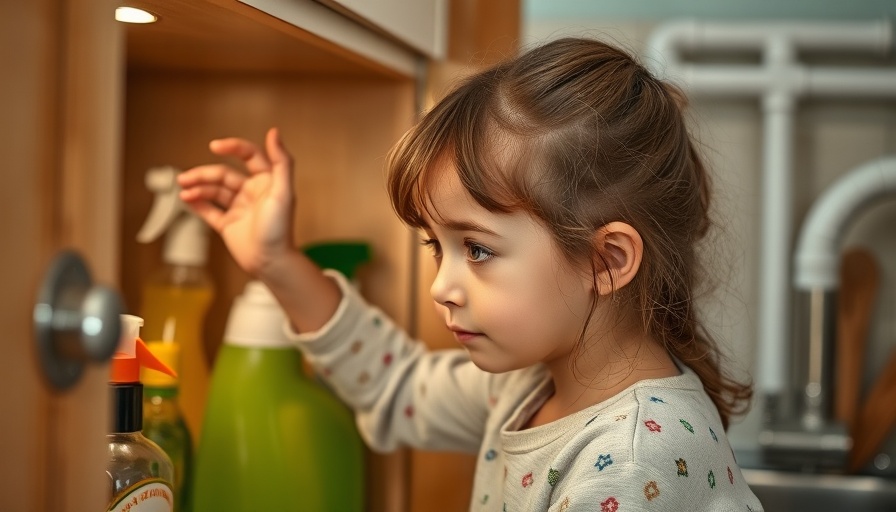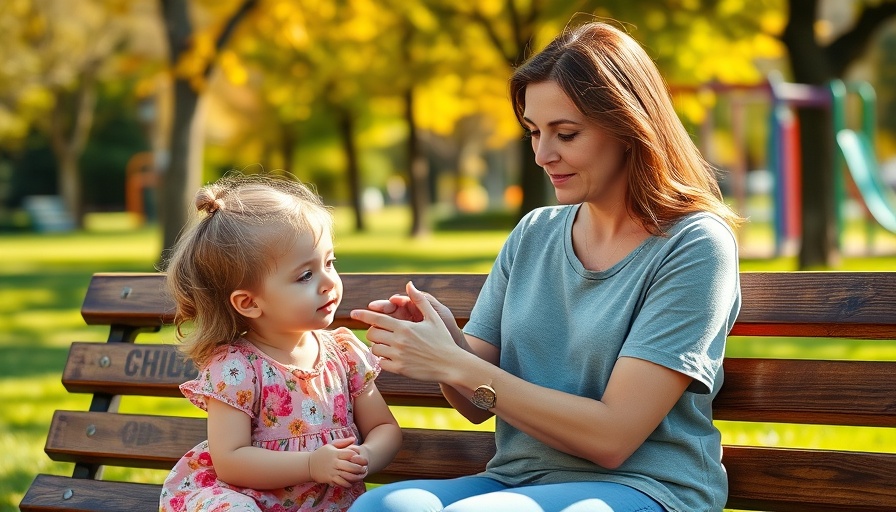
Unpacking the Hidden Dangers in Our Homes
Many parents consider their home a safe haven for their families, yet lurking within the aisles of the pantry and cupboards are potential hazards that can pose severe risks, especially to children. Recent data highlights that more than 2 million poison exposures occur each year in the United States, with children under six comprising nearly half of those incidents. These alarming statistics urge parents and caregivers to recognize the importance of poison safety and to take proactive measures to safeguard their homes.
Everyday Products: Your Home's Silent Threats
From cleaning supplies to personal care products, everyday household items can transition from mundane to dangerous in seconds. Products that are commonly overlooked include:
- Cleaning Products: Chemicals in bleach, drain cleaners, and even 'natural' cleaners can cause more than just irritation; they have the potential for severe damage if ingested.
- Medications: Many children may confuse brightly colored pills with candy, while adults might accidentally take incorrect doses, making careful storage crucial.
- Personal Care Items: Items such as mouthwash and hand sanitizers are often thought of as benign but can lead to accidental poisoning due to their high alcohol contents.
- Garage and Garden Supplies: Surprisingly, antifreeze—a sweet-tasting substance—can be deadly, as can many pesticides and fertilizers commonly used.
Creating a Poison-Safe Environment at Home
In order to transform your home into a more secure space, it is essential to implement practical strategies. Start by setting clear boundaries:
- Store dangerous items out of reach and in their original packaging to prevent accidental use.
- Install child-resistant locks on cabinets to deter even the most determined toddlers, although it's important to remember that "child-resistant" doesn't equate to "childproof".
- Educate yourself on the interaction of products; mixing different cleaning agents can have severe consequences. For instance, combining bleach with ammonia releases toxic fumes.
When Accidents Happen: Your Immediate Actions
Despite the best preventative measures, accidents can occur. It is essential to remain calm and know the protocols to follow:
- Call emergency services if a person stops breathing; time is critical.
- For other poison-related issues, save the helpline number 1-800-222-1222 in your phone; this line offers invaluable assistance and guidance.
- Do not induce vomiting unless explicitly instructed by a medical professional, as certain substances can cause more damage when expelled.
- If possible, retain the product container to provide medical personnel with crucial information regarding what was consumed.
Instilling Lifelong Poison Safety Habits
Building lasting safety habits is invaluable. Take the time to:
- Perform regular checks on your home for expired products or damaged containers.
- Involve children in poison safety discussions; the earlier they start learning about hazards, the better equipped they’ll be. Use simple language with young kids and provide comprehensive explanations as they grow.
- Stay vigilant throughout the year. With each season, new hazards may arise, from seasonal cleaning products to gardening supplies.
Knowing the potential dangers within our homes and adopting a proactive stance can essentially make a life-saving difference. To further educate yourself about poison control measures and child safety, consult healthcare professionals.
 Add Row
Add Row  Add
Add 





 Add Row
Add Row  Add
Add 
Write A Comment